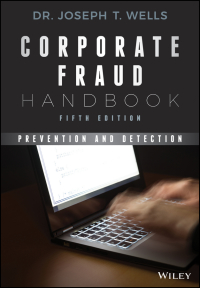



1. Using the data in Exhibits C2.1 and C2.2, calculate and analyze the firm's 2012 and 2013 ratios. 2. Part of Owen's evaluation will consist of comparing the firm's ratios to the industry as shown in Exhibit C3.3. Discuss the limitations of such a comparative financial analysis. In view of these limitations, why are such industry comparisons so frequently made? (Note: Sales are forecast to be $8.25 million in 2014.) 3. Owen thinks that the profitability of the firm has been hurt by Tessa's reluc- tance to use much interest-bearing debt. Is this a reasonable position? Explain. 4. The case mentions that Tessa rarely takes trade discounts, which are typi- cally 1%/10, net 30. Does this seem like a wise financial move? Explain. 5. Is the estimate of $35 to $40 for Owen's shares a fair evaluation? 6. What do you recommend that Owen and Tessa do to improve their company? EXHIBIT C2.1 KF Income Statements: 2012-2013 2012 Sales $6,572,800 Cost of goods sold 4,896,700 Gross margin $ 1,676,100 Administrative 1,281,700 Depreciation 72,000 Earnings before interest and taxes $ 322,400 Interest 37,900 Earnings before taxes $ 284,500 Taxes (at 40%) 113,800 Net income $ 170,700 2013 $7,811,500 5,866,200 $1,945,300 1,492,200 86,000 $ 367,100 31,600 $ 335,500 134,200 $ 201,300 EXHIBIT C2.2 KF Balance Sheets: 2012-2013 2012 2013 Assets $ 300,000 $ 915,000 $ 700,000 $ 36,200 $ 1,951,200 $ 340,000 ($ 135,000) $ 205,000 $2,361,200 $ 244,000 $1,106,600 $1,222,300 $ 46,800 $ 2,619,700 $ 493,600 ($ 233,800) $ 259,800 $2,879,500 Cash Accounts receivable Inventory Other current Current assets Gross fixed assets Accumulated depreciation Net fixed assets Total assets Liabilities and Net Worth Accounts payable Notes payable Accruals Current liabilities Long-term debt Common stock (62,000 shares outstanding) Retained earnings Total liabilities and net worth $ 345,700 $ 63,200 $ 164,300 $ 573,200 $ 316,000 $ 948,000 $ 524,000 $2,361,200 $ 544,800 $ 63,200 $ 156,100 $ 764,100 $ 252,800 $ 1,137,600 $ 725,000 $2,879,500 EXHIBIT C2.3 Financial Ratios for the Electronic Arts Industry Current times) Quick (times) Debt % Times interest earned (times) Inventory turnover (times) Total asset turnover (times) Average collection period (days) Return on equity % Industry Averages 2.6/1.7/1.3 1.6/0.8/0.6 41/57/71 7.4/3.9/1.3 8.1/6.0/3.5 3.5/2.8/2.0 41/50/68 27.3/19.5/7.8 * Third quartile, median, and first quartile results 1. Using the data in Exhibits C2.1 and C2.2, calculate and analyze the firm's 2012 and 2013 ratios. 2. Part of Owen's evaluation will consist of comparing the firm's ratios to the industry as shown in Exhibit C3.3. Discuss the limitations of such a comparative financial analysis. In view of these limitations, why are such industry comparisons so frequently made? (Note: Sales are forecast to be $8.25 million in 2014.) 3. Owen thinks that the profitability of the firm has been hurt by Tessa's reluc- tance to use much interest-bearing debt. Is this a reasonable position? Explain. 4. The case mentions that Tessa rarely takes trade discounts, which are typi- cally 1%/10, net 30. Does this seem like a wise financial move? Explain. 5. Is the estimate of $35 to $40 for Owen's shares a fair evaluation? 6. What do you recommend that Owen and Tessa do to improve their company? EXHIBIT C2.1 KF Income Statements: 2012-2013 2012 Sales $6,572,800 Cost of goods sold 4,896,700 Gross margin $ 1,676,100 Administrative 1,281,700 Depreciation 72,000 Earnings before interest and taxes $ 322,400 Interest 37,900 Earnings before taxes $ 284,500 Taxes (at 40%) 113,800 Net income $ 170,700 2013 $7,811,500 5,866,200 $1,945,300 1,492,200 86,000 $ 367,100 31,600 $ 335,500 134,200 $ 201,300 EXHIBIT C2.2 KF Balance Sheets: 2012-2013 2012 2013 Assets $ 300,000 $ 915,000 $ 700,000 $ 36,200 $ 1,951,200 $ 340,000 ($ 135,000) $ 205,000 $2,361,200 $ 244,000 $1,106,600 $1,222,300 $ 46,800 $ 2,619,700 $ 493,600 ($ 233,800) $ 259,800 $2,879,500 Cash Accounts receivable Inventory Other current Current assets Gross fixed assets Accumulated depreciation Net fixed assets Total assets Liabilities and Net Worth Accounts payable Notes payable Accruals Current liabilities Long-term debt Common stock (62,000 shares outstanding) Retained earnings Total liabilities and net worth $ 345,700 $ 63,200 $ 164,300 $ 573,200 $ 316,000 $ 948,000 $ 524,000 $2,361,200 $ 544,800 $ 63,200 $ 156,100 $ 764,100 $ 252,800 $ 1,137,600 $ 725,000 $2,879,500 EXHIBIT C2.3 Financial Ratios for the Electronic Arts Industry Current times) Quick (times) Debt % Times interest earned (times) Inventory turnover (times) Total asset turnover (times) Average collection period (days) Return on equity % Industry Averages 2.6/1.7/1.3 1.6/0.8/0.6 41/57/71 7.4/3.9/1.3 8.1/6.0/3.5 3.5/2.8/2.0 41/50/68 27.3/19.5/7.8 * Third quartile, median, and first quartile results










